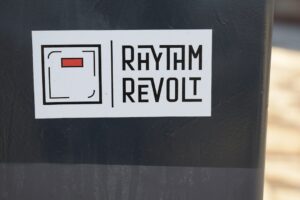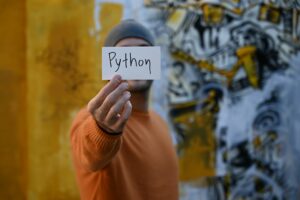Building Scalable Multi-Agent Platforms: Deutsche Telekom’s Journey with Qdrant

Explore how Deutsche Telekom developed a scalable multi-agent enterprise platform with Qdrant, addressing key AI stack and deployment challenges.
Introduction
In the rapidly evolving landscape of artificial intelligence, the demand for scalable and efficient AI deployment solutions has never been higher. Deutsche Telekom’s collaboration with Qdrant exemplifies a significant stride in modular AI deployment, showcasing how large enterprises can harness the power of multi-agent platforms to streamline operations and enhance customer interactions.
The Challenge of Scaling AI in a Multi-National Enterprise
Arun Joseph, head of engineering and architecture for Deutsche Telekom’s AI Competence Center (AICC), identified a pressing challenge: how to efficiently deploy AI-powered assistants across a vast and diverse enterprise ecosystem. With operations spanning ten European countries, the goal was to implement Generative AI (GenAI) solutions for customer sales and service operations, aiming to resolve customer queries swiftly and effectively.
Key Requirements for Scalable AI Deployment
Scaling AI agents in such a complex environment is not merely an AI problem but a distributed systems challenge. Deutsche Telekom’s team pinpointed three critical requirements:
- Handling Tenancy & Memory Management: Ensuring strict data segregation and compliance across different regions.
- Horizontal Scaling & Context Sharing: Maintaining real-time processing capabilities while preserving historical context for AI agents.
- Non-Deterministic Agent Collaboration: Facilitating seamless communication and workflow orchestration among unpredictable AI agents.
Addressing these requirements necessitated a robust, scalable, and modular AI deployment framework.
Developing Frag Magenta OneBOT: A Modular Approach
To meet these challenges, Deutsche Telekom developed Frag Magenta OneBOT, a Platform as a Service (PaaS) that integrates chatbots and voice bots. This platform was designed to ensure scalability and efficiency across the company’s European subsidiaries. Recognizing the complexity of scaling AI agents, the team adopted a platform-first approach, focusing on distributed systems and rigorous engineering principles rather than solely on AI capabilities.
Transitioning to LMOS: Language Models Operating System
Building on this foundation, Deutsche Telekom introduced LMOS (Language Models Operating System), an open-source multi-agent PaaS designed for high scalability and modular AI agent deployment. Key technical decisions included:
- Choosing Kotlin and JVM: Leveraging existing expertise within Deutsche Telekom for seamless integration.
- Custom-Built Framework: Moving away from pre-built solutions to create a highly optimized, tailored platform.
- Heroku-Like Experience: Simplifying the developer experience by abstracting complexities related to classifiers, agent lifecycles, deployment models, and scaling.
LMOS was engineered to be enterprise-grade, supporting scalability, versioning, and multi-tenancy, while maintaining flexibility for integrating agents from various frameworks.
Why Qdrant? The Nexus of Efficiency and Simplicity
In their quest for the ideal vector database, Deutsche Telekom evaluated several options before selecting Qdrant. The decision was driven by Qdrant’s:
- Simplicity in Operations: A lightweight architecture with minimal component dependencies.
- Developer Experience: Robust libraries, multi-language support, and seamless integrations.
- Memory Management: Efficient Rust-based performance tailored for high-demand environments.
- Visualization Tools: Built-in WebUI and collection visualization facilitating easier management and monitoring.
These features aligned perfectly with the needs of LMOS, ensuring reliable performance and ease of scalability without the operational overhead commonly associated with other solutions.
The Impact of Modular AI Deployment with LMOS and Qdrant
The integration of LMOS with Qdrant has had a transformative effect on Deutsche Telekom’s AI operations:
- Enhanced Scalability: LMOS supports over 2 million conversations across multiple countries, significantly exceeding previous capabilities.
- Accelerated Development: The time to develop a new AI agent has been reduced from 15 days to just 2, thanks to the modular and efficient deployment framework.
- Community and Open-Source Collaboration: By making LMOS an open-source project under the Eclipse Foundation, Deutsche Telekom fosters a collaborative ecosystem for continuous improvement and innovation.
Future Prospects and Community Engagement
Looking ahead, Deutsche Telekom envisions a vibrant ecosystem where developers, researchers, and educators collaborate to push the boundaries of multi-agent AI systems. The foundation laid by CAMEL-AI’s research and the practical implementation with LMOS and Qdrant positions Deutsche Telekom at the forefront of modular AI deployment innovation.
Conclusion
Deutsche Telekom’s journey with Qdrant and the development of LMOS illustrate the profound benefits of a modular approach to AI deployment. By addressing key challenges in scalability, memory management, and agent collaboration, they have set a benchmark for large enterprises aiming to integrate sophisticated AI solutions into their operations.
Harness the power of modular AI deployment with CAMEL-AI’s cutting-edge solutions. Visit CAMEL-AI to learn more and join the forefront of AI innovation.
Call to Action
Ready to revolutionize your AI deployment strategy? Explore the comprehensive solutions offered by CAMEL-AI and take the next step towards scalable, efficient, and innovative AI systems. Visit CAMEL-AI Now




